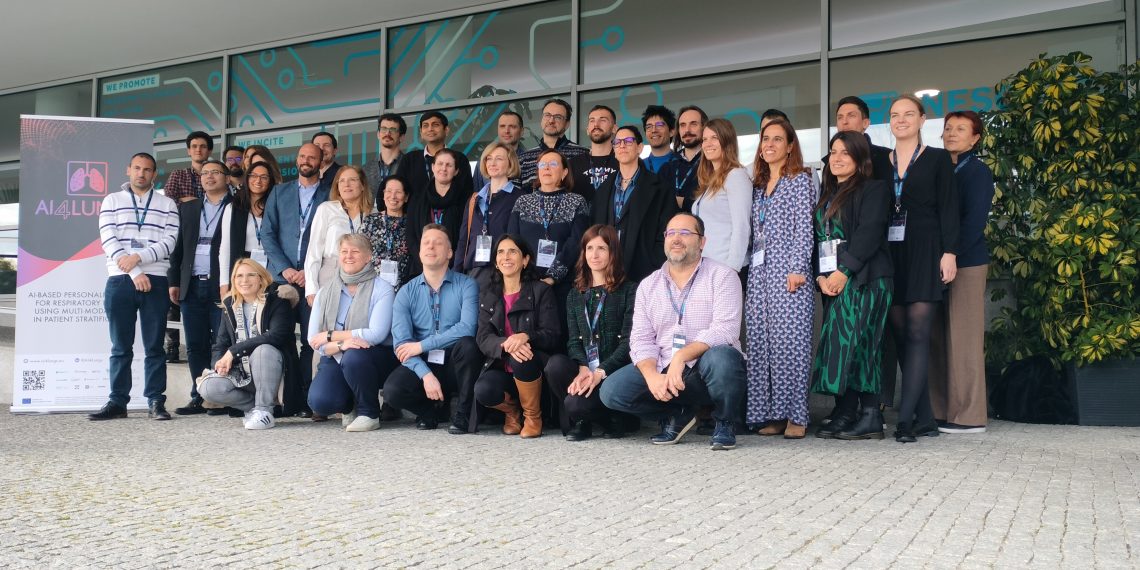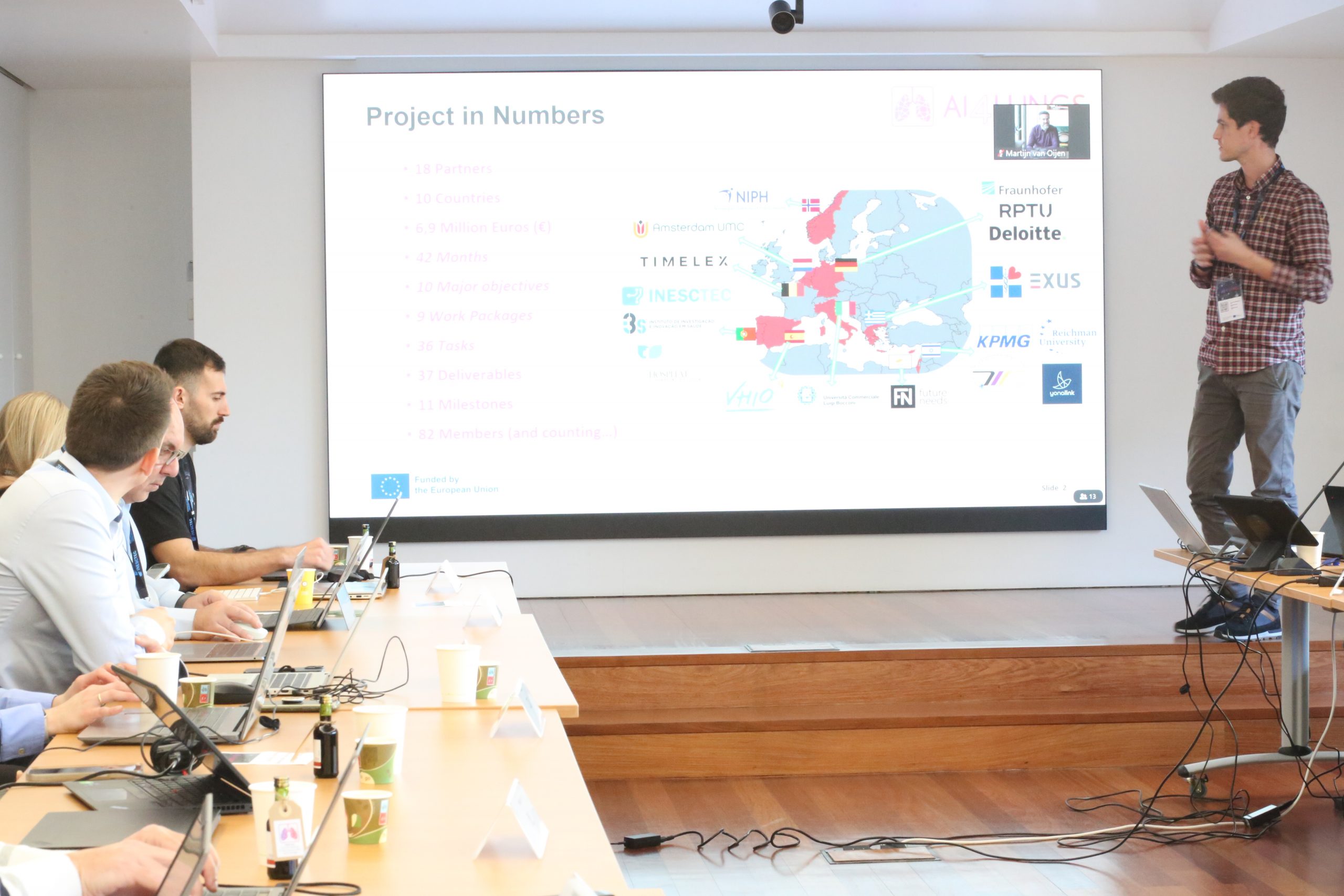It is called AI4Lungs; it aims to develop Artificial Intelligence (AI) tools and computational models to optimise the diagnosis and treatment of lung diseases. Through a holistic and multimodal approach, researchers will create a personalised healthcare solution for respiratory diseases. In late February, representatives of the 18 partner entities of the project (from 10 countries) met at INESC TEC to kick off the AI4Lungs project.
Over the next three years, a consortium led by INESC TEC will work to optimise the process of diagnosis and treatment of lung diseases, namely interstitial lung diseases, infectious diseases, and cancer. AI4Lungs benefits from a budget of €6.9M and brings together a multidisciplinary team: universities, research centres, hospital and healthcare units, companies, and a government organisation dedicated to health policy design.
“INESC TEC joins a consortium with 17 partners from 10 countries, with proven activities, knowledge and experience in different areas: from health-related research, and development of information management systems, to regulation and design of public policies. Thanks to this multidisciplinarity and cross-cutting dimension, we will be able to approach lung health in a holistic and multimodal way and create a system capable of supporting the entire process, from the consultation and initial evaluation of the patient to the treatment itself”, explained Hélder Oliveira.
According to the INESC TEC researcher, the kick-off meeting of AI4Lungs was the culmination of years of work in the establishment of a team and a project, which will allow not only to improve diagnostics and treatments, but also to develop state-of-the-art technologies and contribute to address the challenges associated with the proliferation of respiratory diseases. “It has been a long journey, but this is where the challenge begins – developing new AI tools to support healthcare professionals in the decision-making process, and reduce the need to resort to multiple exams, optimising time and resources”, he said.
Artificial Intelligence and two new solutions: digital auscultation and liquid biopsy
To develop the new tools, the team will combine and integrate different types of data about patients – be it data collected in clinical practices, i.e., lung auscultation, X-ray, CT, or clinical analysis, or demographic data. “Our goal is to develop solutions that aim to improve the devices and tools used in diagnostic decisions, integrating them into a single platform (digital twin) capable of monitoring and advising healthcare professionals throughout the clinical decision process”, explained Duarte Dias.
In addition, and according to the INESC TEC researcher, AI4Lungs “proposes two new technologies in the medical field”. One will be digital auscultation, carried out by INESC TEC, and the other will be liquid biopsy, developed by i3s (Institute for Research and Innovation in Health), which will act as the first line of diagnosis – to determine, at a very early stage, the type of cancer, thus accelerating the diagnostic process. The solutions developed by the project partners will be tested in two pilots, one of them to be carried out in Portugal – more precisely at the Centro Hospitalar Vila Nova de Gaia/Espinho (CHVNGE).
AI4Lungs is funded by the European Commission and the European Health and Digital Executive Agency (HADEA) through the Horizon Europe programme (Grant Agreement No. 101080756)






 News, current topics, curiosities and so much more about INESC TEC and its community!
News, current topics, curiosities and so much more about INESC TEC and its community!